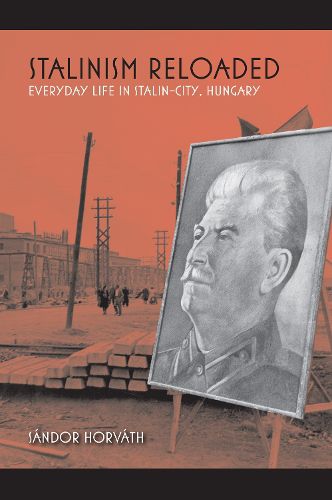Readings Newsletter
Become a Readings Member to make your shopping experience even easier.
Sign in or sign up for free!
You’re not far away from qualifying for FREE standard shipping within Australia
You’ve qualified for FREE standard shipping within Australia
The cart is loading…






The Hungarian city of Sztalinvaros, or "Stalin-City," was intended to be the paradigmatic urban community of the new communist society in the 1950s. In Stalinism Reloaded, Sandor Horvath explores how Stalin-City and the socialist regime were built and stabilized not only by the state but also by the people who came there with hope for a better future. By focusing on the everyday experiences of citizens, Horvath considers the contradictions in the Stalinist policies and the strategies these bricklayers, bureaucrats, shop girls, and even children put in place in order to cope with and shape the expectations of the state. Stalinism Reloaded reveals how the state influenced marriage patterns, family structure, and gender relations. While the devastating effects of this regime are considered, a convincing case is made that ordinary citizens had significant agency in shaping the political policies that governed them.
$9.00 standard shipping within Australia
FREE standard shipping within Australia for orders over $100.00
Express & International shipping calculated at checkout
The Hungarian city of Sztalinvaros, or "Stalin-City," was intended to be the paradigmatic urban community of the new communist society in the 1950s. In Stalinism Reloaded, Sandor Horvath explores how Stalin-City and the socialist regime were built and stabilized not only by the state but also by the people who came there with hope for a better future. By focusing on the everyday experiences of citizens, Horvath considers the contradictions in the Stalinist policies and the strategies these bricklayers, bureaucrats, shop girls, and even children put in place in order to cope with and shape the expectations of the state. Stalinism Reloaded reveals how the state influenced marriage patterns, family structure, and gender relations. While the devastating effects of this regime are considered, a convincing case is made that ordinary citizens had significant agency in shaping the political policies that governed them.